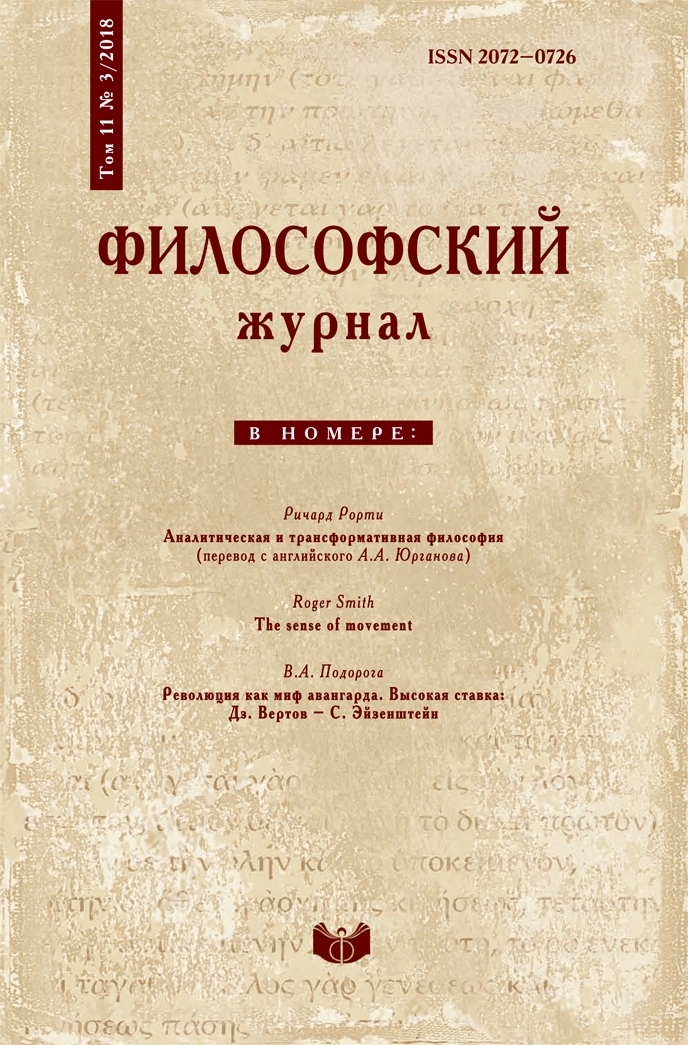The relation between mind and reality in the analytic philosophy of John McDowell
DOI:
https://doi.org/10.21146/2072-0726-2018-11-3-20-32Keywords:
metaphysics, realism, externalism, philosophy of mind, content, Russell, McDowellAbstract
The present paper examines McDowell’s approach to the problem of the relation between mind and reality and demonstrates that externalism, as long as it supports a two-component theory of mental content, is unable to overcome Kantian anti-metaphysical stance toward the ontological problems and to substantiate philosophical realism. The two-component theory of content, which distinguishes between the extra-conceptual object upon which the content of a mental state depends, and the content itself, is discussed along the examples of Russell's epistemology, which divides between knowledge by description and knowledge by acquaintance, his theory of descriptions and contemporary Neo-Russellian externalist theories, in particular the semantic externalism of Kripke and Putnam. Considering McDowell's Neo-Fregean views of on the nature of singular thoughts, the author demonstrates that, in order to substantiate realism, externalism must be compatible with a one-component theory of mental content that would interpret external objects not as an addition to the inner conceptual sphere of the content of mind, but as something present in that sphere in de re mode. According to McDowell, external objects are parts of the conceptual content. From the above it can be concluded that the return to realism, one of the characteristic features of classical metaphysics, is only possible by following the direction determined by post-Kantian, Hegelian thinking and not at all by way of abandoning the tradition of Kant and Hegel, as many analytical philosophers tend to believe.






